Search Images
Browse Content (p. 1554)
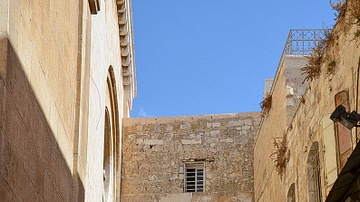
Image
Ecce Homo arch, a triple-arched gateway in Jerusalem
The so-called Ecce Homo arch, a triple-arched gateway, built by Hadrian (2nd century CE), as an entrance to the eastern Forum of Aelia Capitolina. The central arch was flanked by two smaller arches, one of which can still be seen inside the...
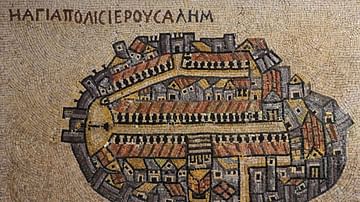
Image
Reproduction of Madaba Mosaic Map
Reproduction of the 6th century CE Madaba Mosaic depicting the map of Jerusalem. The Madaba Mosaic Map is part of a floor mosaic in the early Byzantine church of Saint George at Madaba, Jordan. It is a map of the Middle East. Part of it contains...

Image
Hittite Sphinx
This basalt Hittite sphinx was placed at the entrance into the palace number three at Sam'al (modern-day Sinjerli, Gaziantep, Turkey). Late Hittite period, 8th century BCE. (Istanbul Archaeological Museums/Ancient Orient Museum, Istanbul...
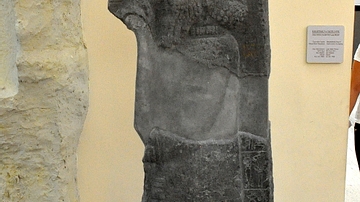
Image
Stela of Warpalawas
This basalt stela depicts Warpalawas, king of Tyana land, praying. From Bor (modern-day Niğde, Turkey). Late Hittite period, 8th century BCE. (Istanbul Archeological Museums/Ancient Orient Museum, Istanbul, Turkey).
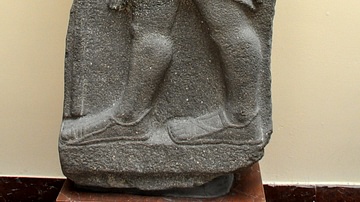
Image
Relief from Hadatu
This basalt wall relief of a warrior was found at Hadadtu (modern-day Aslantas, Turkey). Late Hittite period, 9th and 8th centuries BCE. (Istanbul Archaeological Museums/Ancient Orient Museum, Istanbul, Turkey).

Image
Ningishzida
Old-Babylonian fired clay plaque depicting Ningishzida, the Mesopotamian deity of vegetation and the underworld, flanked by 2 small human figures. Found during the 2nd excavation season of the Oriental Institute of the University of Chicago...
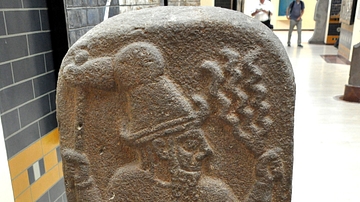
Image
Stela of the God Hadad
This basalt stela of the storm god Hadad of Aleppo was brought to the palace museum of King Nebuchadnezzar II as war booty. From Babylon, modern-day Iraq. Late Hittite period, 9th century BCE. (Istanbul Archaeological Museums/Ancient Orient...
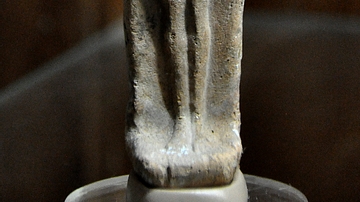
Image
Erotic Old Babylonian Plaque
This terracotta plaque depicts a naked slim woman. She wears a necklace and what appears to be a strap (in three vertical layers) above the pelvis, with one of its ends hanging down on the right thigh. The plaque might have been used for...
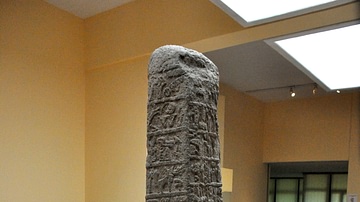
Image
Stela from Izgin
This limestone stela was written with hieroglyphic inscriptions. From Izgin (modern-day Elbistan, Turkey). Late Hittite period, 10th century BCE. (Istanbul Archaeological Museums/Ancient Orient Museum, Istanbul, Turkey).
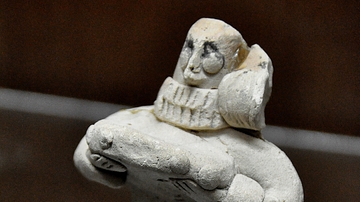
Image
Woman Holding a Daf
This terracotta statuette depicts a nude woman. She holds a daf (dap) in front of her bare chest. She wears a prominent collar and bracelets. The pubic area is highlighted. From Mesopotamia, modern-day Iraq. Early dynastic period, 2800-2300...